How To Care For A Mainecoon Cat: 26 Useful Guide
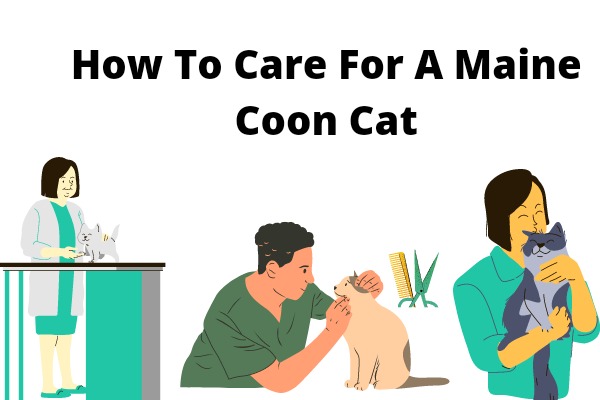
In this article, we will be discussing how to care for a Mainecoon cat, ranging from day-to-day activities and weekly activities.
This is a long article that covers all you need to know about living with Mainecoon cat and care, so sit tight and let’s roll!!!
As a big fan of cats with years of experience, I will outline all the necessary things and ways you should know how to care for a Mainecoon cat.
Mainecoon cats are big, fluffy, and cuddly.
Yet, if you’ve recently adopted one of these giant kitties or plan to, you may be wondering how to care for them, then welcome!!!
Mainecoons are really active cats that need lots of room to play, but they also want to cuddle with their family members on the couch.
To make sure your furry friend lives a long and happy life, here are some tips for caring for a Mainecoon Cat.
Find out the 15 reasons why you should get a Mainecoon cat!!!
How To Care For A Mainecoon Cat
Here is a complete guide on how to care for a Mainecoon cat which is as follows:
Educate your Mainecoon on the fundamentals of living with you
To raise a well-behaved Mainecoon cat, begin by teaching them the fundamentals of human contact.
Keep in mind that Mainecoon cats are still animals, and they will behave the way you want them to rely on their training.
When your Mainecoon kitten arrives at your door, the first thing you should do is to teach him how to reply to its name.
Here are some fundamentals you should teach your Mainecoon cat:
- Get all of the essential supplies, including as a drinking and eating can, litter boxes, a bed, cat trees, grooming equipment, and so on.
- Make using the litter box a habit for your cat.
- Teach your cat to drink from cans.
- Teach your cat the proper place to eat.
- Allow your cat to follow you while you look about your house.
- Begin cleaning your Maine Coon as soon as possible.
- Begin socializing your cat as soon as possible.
- Allow your cats to explore the bookcases and cat trees in your home.
- Teach your Mainecoon cat a variety of tricks.
Spay or neuter your Mainecoon at the younger age
Spay or neuter your Mainecoon if you don’t want to breed it to avoid unwanted litters and protect your cat’s health.
Spaying and neutering your cat helps to reduce the cat’s homelessness and improves their health, allowing them to live a longer and happier life.
Spaying and neutering your cat can help prevent health problems including uterine infections, enlarged prostate, and cancer by eliminating hormonal behavioral abnormalities.
Keep all forms of stress away from your Mainecoon
Maintain a stress-free environment for your Mainecoon cat, since it can lead them to become territorial and aggressive needlessly.
Make sure your Maine cat has everything he or she needs, and don’t make any loud sounds.
Don’t shout at your cat, and don’t make any unnecessary changes to your daily schedule or home.
Feeding and playing time should be done at least once a day.
Feed your Mainecoon a high-quality cat food
To keep healthy, Mainecoons demand high-quality cat food.
Choose a cat food brand that is specifically designed for cats.
If your veterinarian has discovered any specific nutritional requirements for your Mainecoon, be sure the food you choose fits those requirements.
If your Mainecoon is overweight, for example, your veterinarian may suggest feeding him food designed for overweight cats.
If you’re unsure whether food is high-quality, see your veterinarian.
Create a feeding plan that you can stick to
The amount of food you should give your cat each day is listed on the cat food package or bag.
This quantity can be used to aid in the development of a regular eating routine.
Divide the total amount of food your Mainecoon should consume every day into two equal servings.
Then, around eight to twelve hours apart, feed these pieces to your cat.
For example, you might feed your cat breakfast at approximately 7:00 a.m. and dinner at around 6:00 p.m.
Because cats prefer smaller meals, dividing your cat’s daily food intake into two separate meals helps ensure that she eats all of it.
Get your Mainecoon cat a companion
According to many owners, Mainecoon cats do better with other pets than they do without them.
If you don’t spend a lot of time at home, buy your Maine cat a companion.
Show your youngsters how to appropriately interact with your Mainecoon cat.
Give your Mainecoon cat some space when it needs to be alone.
Also, don’t worry about your Mainecoon cat since they might be violent.
If you genuinely want to understand how to care for a Mainecoon cat, get another pet to keep them engaged.
Find out the benefits of getting a second cat for your Mainecoon and how to introduce them.
Clean your Mainecoon’s litter boxes daily
Once a day, fully clean the litter box and scoop the unclean litter on a regular basis.
Your Mainecoon cat, in my opinion, should have at least two litter boxes, based on my years of experience.
One of the most frequent ways to care for a Mainecoon cat is to clean the litter box.
Dirty litter boxes have been connected to a variety of issues, including sickness and illness transmission.
Your Mainecoon cat may have the following issues as a result of a soiled litter box:
- Bacterial pathogens are disease-causing microorganisms.
- Infections caused by parasites.
- Allergies.
- Problems with the skin
- Fleas may be drawn to the area.
- Make a shambles in your own house.
Feed your Mainecoon cat as early as possible
Mainecoon cats must be fed twice a day and very early in the morning.
You should feed your kitten right away and make sure it eats well.
Feed your kitten early thing in the morning when you have free time to avoid forgetting.
Give your kitten particular attention and make sure he or she gets adequate food because Mainecoon cats don’t perform well when they’re hungry.
Make sure there is enough clean, fresh water available
Mainecoons are one of the few cat species that like spending time in the water. Everything that has to do with water fascinates them.
Mainecoons require continuous access to clean, freshwater.
Regularly clean your cat’s water dish and keep it full of clean, fresh water at all times.
Food and water dishes for your cat should be kept away from the litter box. Cats will not eat or drink near their litter boxes.
Create a playing time for your Mainecoon cat
Mainecoon kittens are among the most lively creatures, and they like playing with you, your dogs, toys, and other items about the house.
You may take them for a stroll or play with them because they are quite active.
However, you must look after them so that they do not harm their paws in any way.
After playing, you should keep them in their cages or room for a long period so that they may rest and sleep.
You can play the fetch game with your Mainecoon cat, as this helps to improve bonding.
It is important for all Mainecoon owners to engage with cats on a regular basis, whether or not their large cat is permitted outside.
This is because Mainecoons like being around humans and playing with them will help you and your cat get along better.
Give your Mainecoon treats as a reward
Give treats to your Mainecoon as a little incentive now and then, so having some on hand is a good idea.
Just make sure you don’t overfeed your Mainecoon, or he might become overweight or obese.
Treats should make up about 5% of your Mainecoon’s daily diet.
Look for treats that can help to clean your cat’s teeth as she chews.
These treats can help to maintain your cat’s dental health along with regular tooth brushing.
Regularly trim your Mainecoon’s claws to avoid scratches
Scratching and moving around can help to wear down your Mainecoon’s claws, but he may still require a trim now and again.
You should clip your Mainecoon’s claws once every three weeks to keep them from getting too long.
Trim only the white tips of your Mainecoon’s claws when trimming them.
Trim the pink portion of your cat’s claws no farther than halfway down the claw.
Trim your Mainecoon’s claws without using scissors. Use a pet nail clipper with a guillotine blade.
If you don’t want to cut your cat’s nails yourself, you can take him to a veterinarian or groomer.
Provide at least two scratch posts for your Mainecoon
When a cat scratches, the outer nail sheath is torn away, revealing the sharp, smooth claws beneath.
Cutting your cat’s nails every two to three weeks will keep them relatively blunt, making them less likely to harm human and furniture arms.
Give your cat a sturdy scratching post that is at least three feet tall.
The post should also be stable enough to not wobble while in use and covered with a rough material like sisal, burlap, or tree bark.
Scratching pads are also popular among cats.
Make sure you deworm your Mainecoon
Call your veterinarian if you notice any changes in your cat’s eating habits or in your cat poop. See worm symptoms in cats.
Your Mainecoon cat might be infected with a variety of worms, so talk to your veterinarian about when you should deworm it.
If your cat vomits, don’t ignore it; if it continues, see your veterinarian, since worms can cause serious problems in your Mainecoon cat’s system.
One of the reasons you shouldn’t allow your cat to go outside without supervision is the risk of contracting worm larvae.
Worms can stay for long after deworming before they are gone, so always speak to your veterinarian.
Brush your Mainecoon’s fur on a daily basis
Mainecoons have thick coats that require special attention.
Their coats are oilier than other cats’ fur, thus they don’t require as much brushing as other long-haired breeds, though they do need it on occasion.
To keep your Mainecoon’s coat tangle-free, brush it once a week.
Mainecoons tolerate brushing in general, but it’s a good idea to start brushing early to ensure that your Mainecoon will endure it.
Brush your Mainecoon with a stainless steel comb all over his or her body.
Your cat’s tummy and tail are more likely to develop matted than other parts of his body, so pay special attention to them.
Here is a guide on Mainecoon grooming!!!
Give your Mainecoon daily exercise
Mainecoons love to play ball, and if you toss one for them, they may play retrieve.
This will enable them to obtain the daily activity they require.
Make sure they get at least 15 minutes of activity every day, as this will aid in normal blood circulation.
Regular exercise also allows your Mainecoon to have a decent slumber without feeling anxious, so give him a regular workout.
Regular brushing of your Mainecoon’s teeth is essential
Brush your Mainecoon’s teeth on a regular basis since they are prone to dental problems and need to be brushed.
Brush your Mainecoon’s teeth once a week or daily depending on your schedule to maintain her teeth healthy.
Invest in a customized cat toothbrush and toothpaste for your Mainecoon.
Consult your veterinarian for the best toothpaste and brush for your Mainecoon cat.
Never use human toothpaste on your cat. Fluoride, which is present in human toothpaste, is toxic to cats.
Provide lots of interesting toys for your Mainecoon
Give your Mainecoon some toys that look like mice.
Mainecoons are recognized for their outstanding mouse capturing abilities, so aim to give toys that will encourage these abilities for your Mainecoon.
Because Mainecoon cats are very active and energetic, stick to toys that stay low to the ground.
They will be happier and healthier if you offer them more toys.
We’ve created a list of the top six most popular Mainecoon cat toys, as follows:
- PetFusion Ambush Interactive Electronic Cat Toy.
- Potaroma Electric Flopping Fish.
- Catit Design Senses Circuit Cat Toy.
- Catit Senses 2.0 Food Tree Cat Feeder
- Interactive Cat Toys Ball, Automatic 360° Self-Rotating Rolling Ball with USB Rechargeable.
- Scratching Post Premium Sisal Toll Scratch Posts with Tracking Interactive Toys Vertical Scratcher
Give your Mainecoon cat bathe once in a while
Mainecoons are more tolerant to water than most other cat breeds.
Because some Mainecoons like being in the water, bathing your Mainecoon should not be too difficult.
Baths are not necessary for Mainecoons on a regular basis, but you should give her one if she becomes unclean and needs one.
Vaccinate your Mainecoon and go for regular medical check-ups
Always consult your veterinarian to decide which vaccinations and when they should be administered to your cat, as this is dependent on the cat’s habitat and exposure to other cats.
Mainecoons, like other cats, require regular vaccinations and examinations.
You should take your Mainecoon to a veterinarian as soon as possible after getting her.
Your cat will get a physical assessment and be tested for feline leukemia during her first veterinarian appointment.
If you detect any problems with your Mainecoon, you should visit her at least once a year and take her to the veterinarian.
Clean your Mainecoon cat’s ears regularly
Cleaning your cat’s ears as completely as possible is essential.
Mainecoon cats’ ears become blocked with dirt and other debris as a result of this.
Clean your kitty’s ears in such a way that your cat is not hurt.
Always give your cat treats when the cat allows you to clean its ear.
Always clean your Mainecoon kitten’s ears with a clean rag soaked in warm water or with a suggested ear cleaner by a vet.
You must clean them with care. There are lots of videos on YouTube on how to clean a cat’s ear.
Always keep your Mainecoon indoors
The number of predators in a certain region influences how long a cat can live there; the higher the number of predators, the worse the cat’s chances of survival.
On the other hand, the fewer predators in a given region, the better the cat’s chances of survival.
Of course, an indoor cat who wanders into the woods will perish if there are hungry wolves in the vicinity.
Keep your Mainecoon inside at all times and make every effort to block any escape routes.
Read more about the pros and cons of letting your Mainecoon go outside without your supervision!!!
Invest in the right cat tree for your
Mainecoon cats love to scratch to remove their old and dead nails, therefore having the appropriate scratch post can keep them from scratching your furniture.
Mainecoons like napping and exploring each area of cat trees, and this is the most recommended cat tree.
Many of the cat towers for sale on the internet are too small for your Mainecoon kitten’s future needs.
They’re just too little for a full-size Mainecoon to play on, and as your Mainecoon kitten grows week after week, you’ll need to upgrade to a larger cat tower.
Practice regular healthy hygienic processes
Good cleanliness practices are only a preventative measure to aid Mainecoon cats in avoiding unnecessary shedding.
Follow these hygiene tips to keep your Mainecoon from shedding:
- Make sure your Mainecoon cat gets fresh water at all times.
- It’s critical to change your Mainecoon’s drinking water on a regular basis.
- Keeping your Mainecoon feeding bowls clean is important.
- Because the footwear is unkept, removing your shoes enables your Mainecoon to avoid being ill from worms.
- It’s not a good idea to let your Mainecoon use unclean litter boxes.
- Keep the floor of your home clean.
- Allowing no access to your Mainecoon’s long-term waste.
Give your Mainecoon cat a variety of climbing platforms
Set up one cat tree near a window so your Mainecoon can climb while watching birds through the window.
Keep in mind that Mainecoon cats are excellent climbers, so make sure they have plenty of places to explore when they get bored.
Always provide 2 to 3 scratch posts for your Mainecoon to avoid using your doors or furniture as scratch posts.
Get your Mainecoon screened for heart conditions
Because of their final body size, Mainecoons may be more prone to cardiac problems than other breeds.
However, as your Mainecoon grows, you should ask your veterinarian to undertake testing to rule out any potential cardiac problems.
Heart illness in Mainecoons is known as hypertrophic cardiomyopathy, and it is caused by the thickening of the muscular wall of the heart (usually the left ventricle).
Mainecoon cat supply checklist
Here are some common things you should get, for you to properly care of your Mainecoon;
- Premium-brand cat food
- Food dish
- Water bowl
- Interactive toys
- Brush
- Comb
- Safety cat collar with ID tag
- Scratching post or scratching pad
- Litter box and litter
- Cat carrier
- Cat bed or box with warm blanket or towel
Wrapping up on how to care for a Mainecoon cat
Feed a Mainecoon high-quality dry food 2-4 times each day to keep it healthy.
Carbohydrates, vitamins, lipids, and fatty acids should all be included in their diet.
Groom your Mainecoon at least once a week to prevent matting.
Spend as much time as possible with them since this extremely intelligent feline species thrives on human interaction.
Encourage your Mainecoon to stay active and play on a regular basis.
I hope I answered your question about how to care for a Mainecoon!!!

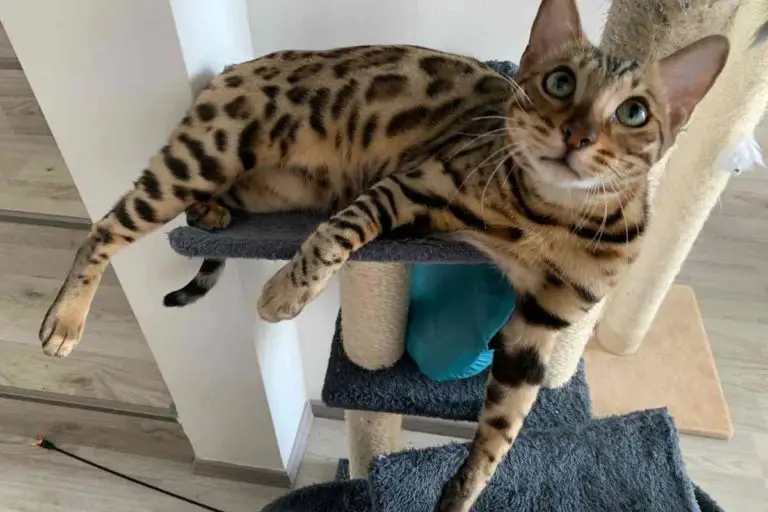
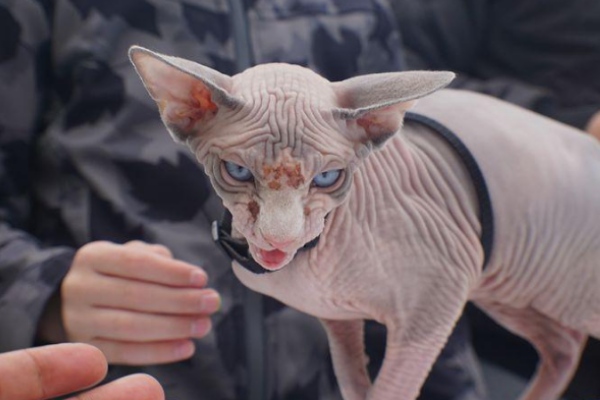
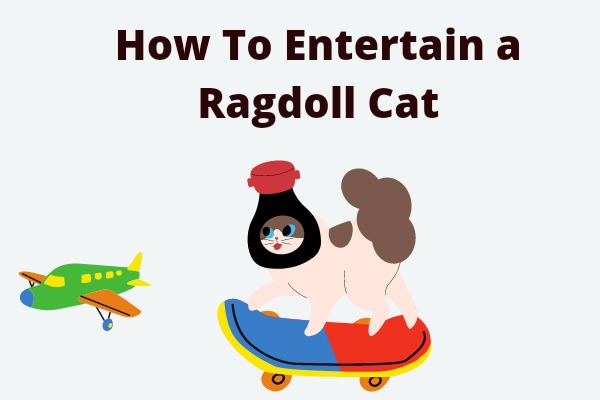
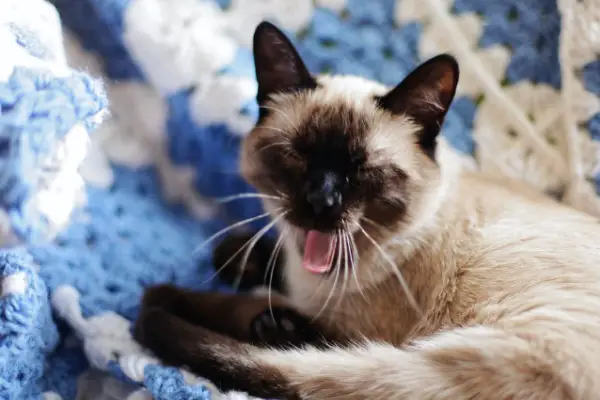
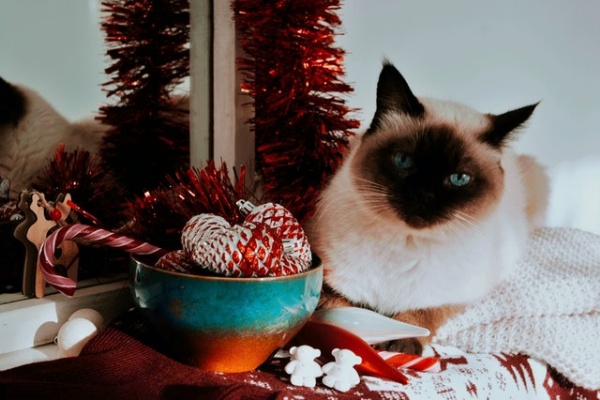
![Why Is My Kitten Drinking So Much Water [9 Reasons] Why Is My Kitten Drinking So Much Water](https://petcreeks.com/wp-content/uploads/2023/12/pexels-helena-jankovicova-kovacova-16440316.jpg)